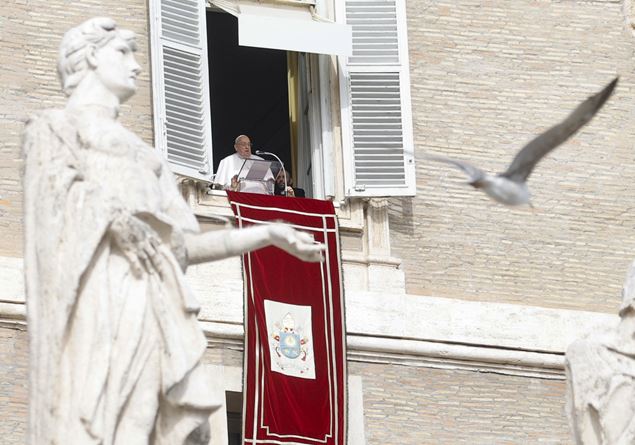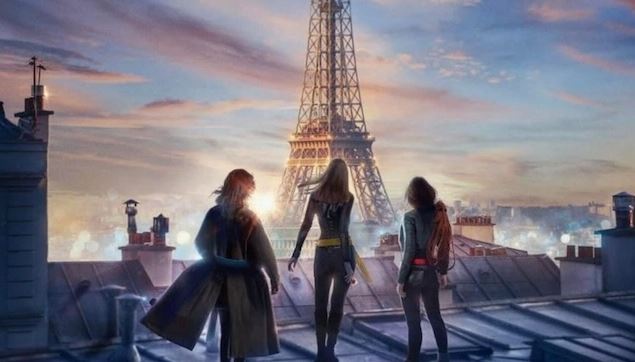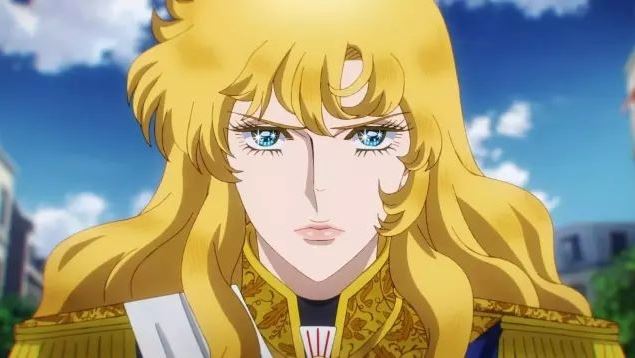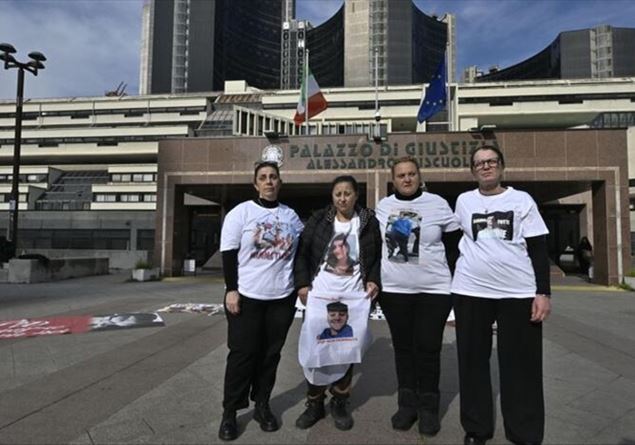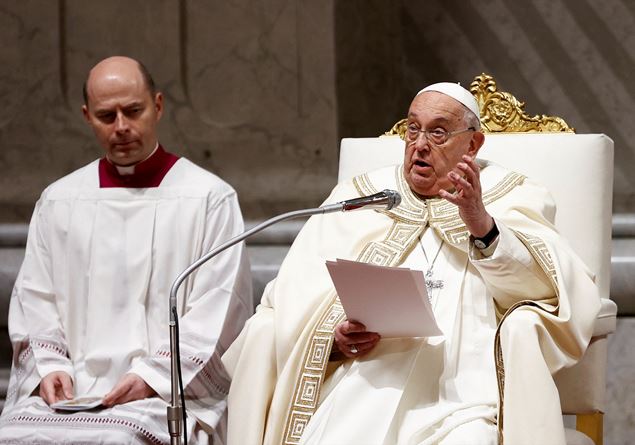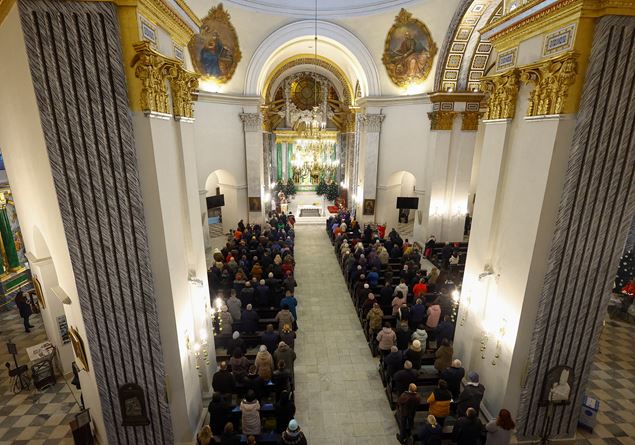
Monsignor Vitaliy Krivytskyi, 52 years old, bishop of the diocese of Kyiv-Zhytomyr.
Sent to Kyiv
«Three years ago we would not have imagined that war would break out. Today, we know that the conflict will end but we don’t know when. We are aware of being able to defeat evil, but on the other hand we are really very tired of this war. After almost three years, God knows whether we Ukrainians have become wiser, but we have certainly become less naive.” From its location at St. Alexander’s Cathedral in the heart of Kyiv, it is Monsignor Vitaliy KryvytskyiSalesian from Odessa, Roman Catholic bishop of the diocese of Kyiv-Zhytomyr since 2017, reflects on the war and takes stock of the situation of the Ukrainian Catholic community.
Your Excellency, how has the Catholic community in Ukraine changed in these years of war?
«In the eastern regions some Catholic communities have disappeared. In other places, for example in the Kyiv area, some of our communities have grown. Even here in the cathedral we have returned more or less to the numbers before the Covid pandemic, with the presence of around 1500 faithful on Sunday. Many people left here during the war, but at the same time many others arrived from the East. And with the war, many have understood that they must rely on God and strengthen their faith. Now many couples ask for marriage much more quickly because the husband is about to leave to fight at the front.”
With the Russian invasion, many Orthodox Ukrainians entered into a crisis with their religious affiliation. Do you think that the conflict has led to a movement of faithful from the Orthodox Church towards the Catholic Church?
«Yes, of course, many have come to us claiming to be Orthodox. Most of the time these are people baptized in the Orthodox Church who then distanced themselves from the faith and were not practicing. And now, in time of war, they have found God again. But I must underline that the Catholic Church does not proselytize by calling other people to us. Furthermore, it should be remembered that we never repeat baptism, nor marriage if it has already been celebrated. We respect their sacraments already imparted.”
Catholicism (Roman Catholic and Greek Catholic) is a minority in Ukraine. Do you think that with the conflict the way of looking at and considering the Catholic Church in Ukraine has changed?
«If we talk about the trust of Ukrainians towards the Pope and the Church, before the war this was very high: trust towards Pope Francis reached 86%, the highest percentage at an international level. With the conflict, this percentage has greatly decreased. In truth, many of the Pontiff’s declarations were not accepted and well received by the Ukrainians. For example, when he talked about Great Russia, Tsar Peter the Great and Catherine II. These are declarations for which it was clearly seen that the Pope was not prepared and were therefore pronounced in a very spontaneous way. Certainly these words have hurt many people already deeply affected by the war. I say this myself, as a Ukrainian bishop living in the capital where we have been and continue to be constantly attacked. War is often seen with different eyes by those who experience it firsthand and those on the outside. Surely our vision here is full of pain and even a single statement that cannot be shared can hurt and reopen the wounds. However, I must add that Ukrainians do not understand the Pope for many other reasons. Here the media mention Pope Francis only when he pronounces a phrase that is wrong for us. However, no one here says anything about the fact that the Pontiff constantly directs his thoughts and prayers to Ukraine, for example in the Angelus on Sunday and at the audience on Wednesday. When the Pope makes gestures to help Ukraine, no one here talks about it. And certainly this lack of balance in information causes the lack of understanding on the part of Ukrainians towards the Pope. It also hurts us Ukrainian bishops to sometimes hear certain pronouncements from the Pontiff that we know will not be understood and accepted by the people. On the other hand, we know that it suits certain people or circles that the Pope loses confidence with the Ukrainians and credibility with us.”
Who is it suitable for?
«There are people here who claim that the world’s wars are started and guided by the Vatican because, they say, for the first time the Pope is a Jesuit. An argument which, for me as a man of the Church, is extremely weak. We can say that we are victims not only of the conflict, but also of this type of message. This information war does not only exist here but also in other countries.”
In these years of conflict, Ukrainians have received a lot of support and help from the rest of the world, starting from Europe. How is the situation now?
«In recent years we have found true friends, brothers and sisters in Christ. Thanks to Caritas we opened a canteen in Zhytomyr, where every day 300 people receive a hot meal. We know that these people receive much more than food, they feel welcomed and know that they can receive support there for other types of problems too. I must also say that today keeping this center open is much more difficult than in the early days of the war, because now funding is scarce. However, the emergency continues: every day in the East of the country we lose new villages that are occupied by the Russians and there are always new evacuations of inhabitants towards the Western areas”.
Do you think that the war years have brought Ukrainians closer to the idea of becoming part of the European Union?
«Throughout its history, Ukraine has always had to choose between the West, Europe, and the East, the Russian world. What is certain is that Ukrainians absolutely do not want to return to the times of the Soviet Union. I think almost every Ukrainian has a family member who suffered from Soviet oppression. For example, I have a grandfather who is still missing today, it is not known where and when he died. We know how the Church was destroyed in the times of communism. We have no reason or argument to go back. In wartime, things are either black or white, there are no shades of grey. And now here for the Ukrainians the only possible alternative is the European Union, there is no other path.”
(Reuters photo above: the celebration of mass in the Roman Catholic Cathedral of Saint Alaeesander in Kyiv)

